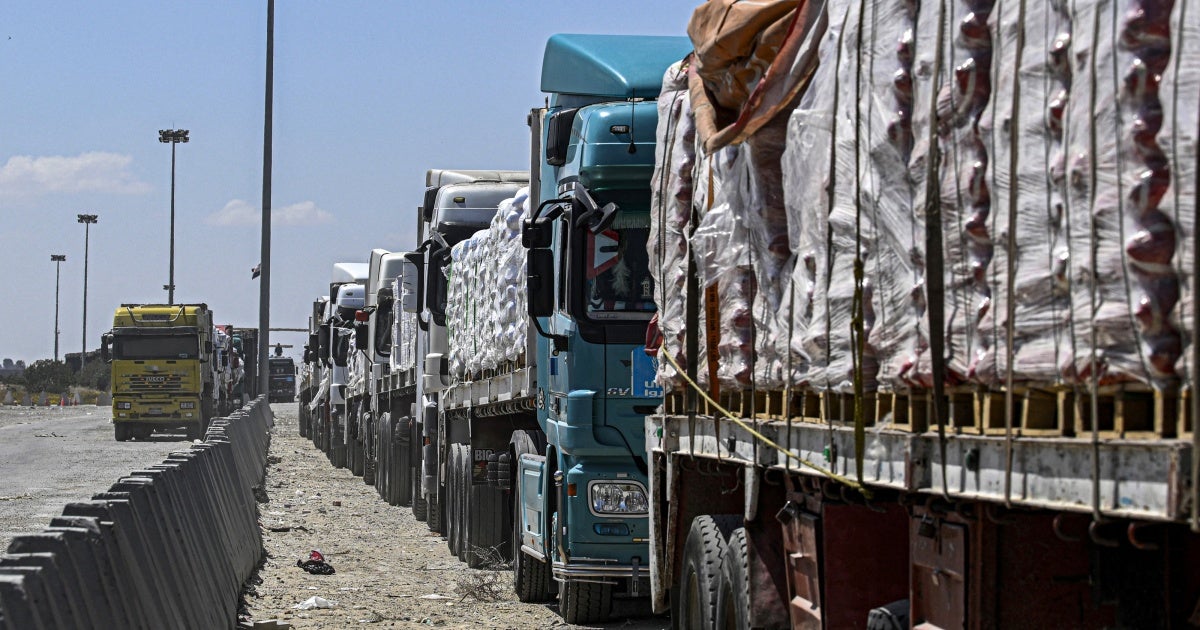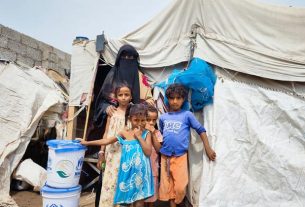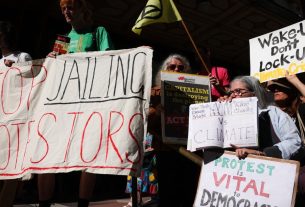May 25, 2025
The war in Gaza has entered what the United Nations calls its “cruellest phase,” with 2.1 million people at risk of famine and thousands of aid trucks stuck at the border. As pressure mounts to resolve the growing humanitarian catastrophe, deep divisions remain between international agencies urging immediate aid delivery and Israeli officials citing grave security concerns.
A Crisis Deepens
According to UN Secretary-General António Guterres, Gaza’s civilian population is now facing conditions of extreme hunger, with malnourished children and mothers unable to access basic nutrition or medical care. Nearly 9,000 aid trucks, carrying food, water, and medical supplies, are reportedly ready to enter the besieged territory. Yet, only about 130 trucks have crossed into Gaza in recent days — a fraction of the minimum 600 trucks per day the UN estimates are needed to meet basic humanitarian needs.
One Gazan baker told the BBC that his flour would run out within 48 hours. Mothers shared heart-wrenching accounts of infants crying continuously due to hunger, unable to breastfeed. “This is not survival. This is slow starvation,” said one local resident.
Israel’s Security Concerns and Accusations
While the humanitarian situation is dire, Israeli authorities maintain that allowing unchecked aid could pose significant risks. The Israeli military has accused some aid organizations of being infiltrated or compromised by Hamas operatives, raising concerns that humanitarian convoys could be exploited to smuggle weapons or support militant infrastructure.
The Israeli Coordination of Government Activities in the Territories (COGAT) asserted on Thursday that “there is no food shortage in Gaza at this time,” attributing the crisis partly to what it describes as mismanagement and manipulation of aid by Hamas.
Prime Minister Benjamin Netanyahu also launched a rare public rebuke of the UK, France, and Canada, accusing them of “emboldening Hamas” after they condemned Israel’s expanded military operations. France and the UK have firmly rejected the claim; Canada has yet to respond.
Escalating Conflict
Fighting continues unabated. According to the Hamas-run health ministry, 60 Palestinians were killed and 185 injured in the past 24 hours alone, bringing the reported death toll in Gaza to 53,822 since the war began. The Israeli military confirmed it had struck over 75 targets within the same time frame, reaffirming its commitment to defend its population against Hamas, which it calls an existential threat.
Israel’s war effort began in response to Hamas’s October 7, 2023 cross-border attack, which killed approximately 1,200 people and resulted in the kidnapping of 251 others.
A Humanitarian Dilemma
Caught in the middle of this devastating conflict are ordinary Gazans — civilians, families, and above all, children — suffering the brunt of what has become a humanitarian catastrophe. While the Israeli government cites real and pressing security concerns, and while aid agencies must safeguard against logistical compromise, the current standstill leaves millions on the brink of starvation.
From a neutral and humane standpoint, solutions must be urgently sought. Aid cannot become a casualty of politics. The international community, including neutral mediators, should work with both Israel and humanitarian organizations to establish secure, transparent, and verifiable aid corridors. Any credible allegations of compromised aid channels must be addressed — but not at the expense of innocent lives.
The Path Forward
A workable, monitored aid mechanism — possibly involving third-party oversight — could balance the need for Israel’s security with the imperative of humanitarian relief. Children, civilians, and the vulnerable must not be made to pay for the failures or crimes of armed actors.
If the world is to prevent further descent into catastrophe, it must ensure that humanity, not hostility, leads the way. Aid must flow — safely, efficiently, and immediately — because survival cannot wait for peace negotiations to conclude.



